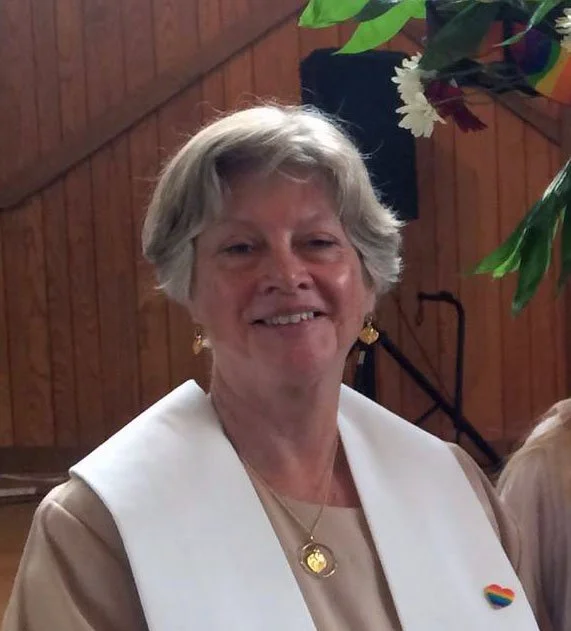
Congregational Accompaniment
Juniper Formation prophetically reimagines the Church from the margins for ourselves within our congregation, and with others, like your congregation
You are not alone.
We will facilitate spiritual and relational discernment;
we will accompany you on the journey; and
we will collaborate to imagine and implement Spirit-led ministries with your congregation.
What We Do:
A Story of Church Ministry Rebirth
We are ministers active in new and prophetic congregational ministry at Juniper Formation.
Our ministry intentionally includes accompanying your congregation in spiritual transformation as part of our congregational mission to prophetically reimagine the Church from the margins.
We are not church consultants.
Our Approach
Liberation
Juniper Formation is invested in shared liberation and disrupting the cornerstones of oppression. We are committed to radical love and justice for the diversity of God’s creation, especially the marginalized and oppressed. Our church is women- and nonbinary-led, multiethnic and antiracist, affirming of undocumented neighbors, celebrating of different abilities, and Open & Affirming of LGBTQ+ individuals and families in the life, leadership, and sacraments of our church. We are centering the margins of the Church.
Our ministry and financial model prioritizes people and relationships. In practice, this means a progressive, just, and equitable staff compensation structure; supporting people starting new ministries by cocreating ministry projects together and offering contract pay and ministry project expenses; leveraging our financial resources to address historical and present-day wealth inequality and discrimination in the Church; and centering the margins of the Church in ministry. Our ministry is supported by donations, grants, and fees for services.
Relational Discernment
Juniper Formation is rooted in the concept of relational discernment that moves beyond ecclesial hierarchy and responds directly to the scriptures in which Jesus promises the disciples another advocate, the Holy Spirit, “You know truth, because the Spirit abides with you, and Spirit will be in and among you (John 14:17b).”
Institutions of all kinds rarely, if ever, teach relational skills. The absence of intentional formation around relational capacity has led to a skills deficit that regularly manifests in relational dysfunction within institutions like the Church. Such dysfunction manifests in unhealthy, violent, unholy, and ineffective institutional, community, and congregational spiritual and democratic public life.
Juniper Formation’s approach emphasizes that the Holy Spirit is in and among us, meaning that it is in relationship that we can learn to experience the movement of the Holy Spirit and cocreate ministry together. In contemporary Christian and broader society, discernment is often taught, discussed, and practiced as an individual contemplative practice. However, many Christian ecclesial traditions emphasize the role of community in discernment, particularly for ordination. H. Richard Niebuhr identifies this as the "ecclesiastical call," in which the community and Church affirm the Spirit's call to an individual. As a discernment practice, the effect of relational meetings is aligned with the effect of the contemplative experience described by Rev. Dr. Barbara Holmes as:
Specific to the participating person or community. Those caught up in this intimacy with God explain that the experience expands their knowledge, awakens a palpable and actionable love, and is either a profoundly restorative resting in divine presence or a "fire shut up in the bones" that inspires action. The action can be restorative of personal relationships or proactive for the needs of the community.
Juniper Formation's ongoing practice of relational discernment leads to an embodied clarity of values, mission, ministry, and embodied faith, while recognizing changing social and cultural contexts through the lived experiences of our neighbors and self. It is a practice that identifies spiritual gifts and Calls to ministry, and seeds new and restructured ministries, organizational cultures, governance models, and community-congregational shared ministry partnerships.
How We Work
Juniper Formation’s approach to helping congregations and new ministries thrive brings together worshipful Christian practice, cultural capacities, relational community organizing practices, lay and clergy ministry formation, and ministerial presence. Key aspects of Juniper Formation’s approach are:
Spirit-led: We know and trust that the Holy Spirit is at work and the gifts of the Spirit are present. The Spirit invites deep discernment and the opportunity for prophetic imagination, innovation, cocreation, and transformation.
Relational: One of our key practices is relational discernment—seeking out the movement and gifts of the Holy Spirit within relationship to one another. We prioritize spending time with congregations and communities to develop meaningful relationships that build trust and openness while encouraging Spirit-led growth and transformation.
Contextual: Every congregation has its own stories, experiences, relationships, communities, theologies, and liturgical traditions. We take the time to learn and minister within each context focusing on facilitating a process. We do not provide a “one-size fits all” solution. We are about exploring faithfully together with the Spirit.
Abundant/Asset-based: In relationship, we enjoy and trust the abundance of the gifts of the Spirit and God’s creation—rather than living in scarcity and fear. This faith-filled approach helps open the door to prophetic imagination and innovation.
Accompaniment: We’ve discovered that honest and faith-filled formation and transformation occur through ongoing accompaniment. Prophetically reimagining the Church can’t be done in one weekend, one workshop, or one consultation. We follow the model of Jesus’s ministry, which included ongoing accompaniment in and with various local communities. In this process, we also teach congregations how to better accompany one another in discipleship by facilitating the deepening of relationships within and between the church and wider community.
Cocreative: We engage in deep listening, reflection, discernment, and invite congregational expertise and cocreation—rather than offering a top-down, expert-driven model.
Worship-ful: What we do is ministry and it is always worship—not business consulting. Reconnecting congregations to Christian practice and ritual is a keystone of our ministry in connecting to the sacred and one another for belonging, healing, and transformation.
Outcomes and Evaluation
A Spirit-led process means that outcomes are contextual and oftentimes beyond our control or imagination. This said, our process does have outcomes, some we can name up front and others we discover as we go.
We engage relational, quantitative, and qualitative evaluation throughout the process. Evaluation methods are modeled after and adapted from the Participatory Action Research Method, which is a community-engaged research method that emphasizes full community participation and action in a collaborative approach to change and evaluation between “researchers” (Juniper Formation ministers) and “participants” (congregations and communities).
We also privilege public evaluation in one-to-one and group settings as an important aspect of congregational formation in which we learn how to have healthy and honest conversations directly with one another as a congregation.
During the congregational accompaniment process, Juniper Formation cocreates outcomes with congregational lay leaders and clergy developed out of a facilitated congregational conversation or with governing bodies and staff. As many people as possible are included, dependent on a congregation’s culture, context, and willingness.
Outcomes are included in contracts with the congregation and shared in regular church communications and program materials. Juniper Formation engages in periodic evaluation with the congregation and key leaders throughout the accompaniment process, in addition to providing a final evaluation that identifies key learning and outcomes.
Juniper Formation documents the full accompaniment process, taking photos and videos where appropriate and with permission, inviting members of the congregation and staff to contribute blog posts, video statements, and other contributions, in addition to Juniper Formation staff multimedia blog posts.
Testimonials
Congregational Accompaniment
Sliding Scale Fees
Juniper Formation uses a sliding scale to determine fees for working in a consulting role to accompany congregations through discernment, reimagining of their ministry, new ministry formation, and community-engaged ministry development.
The purpose of our sliding scale is to be equitable and accessible to all congregations and aligned with Juniper Formation’s missional approach of centering the margins of the Church. In the context of congregational accompaniment, centering the margins means focusing on affordability for congregations who have been disproportionately affected by systemic discrimination and oppression.
Therefore, our sliding scale is based on liberating generational assets and wealth within the Church to support collective responses to the Call of the Holy Spirit as we learn how to live out the Gospel together.
Our sliding scale based on congregational wealth includes, but is not limited to:
Annual budget (focusing on health and missional allocation of funds)
Wealth accrual through endowment, investments, and/or restricted funds
Property ownership and usage
$175
per hour
Congregations that have accrued wealth through endowments, investments, and/or other restricted funds.
$135
per hour
Congregations that have a healthy and missional budget, but who do not have significant “rainy day” funds through endowments, investments, and/or other restricted funds.
$95
per hour
Congregations that identify with populations that have been disproportionately affected by systemic discrimination and oppression, which negatively impact generational and institutional wealth development. Or congregations that are truly struggling financially to fund their mission.





